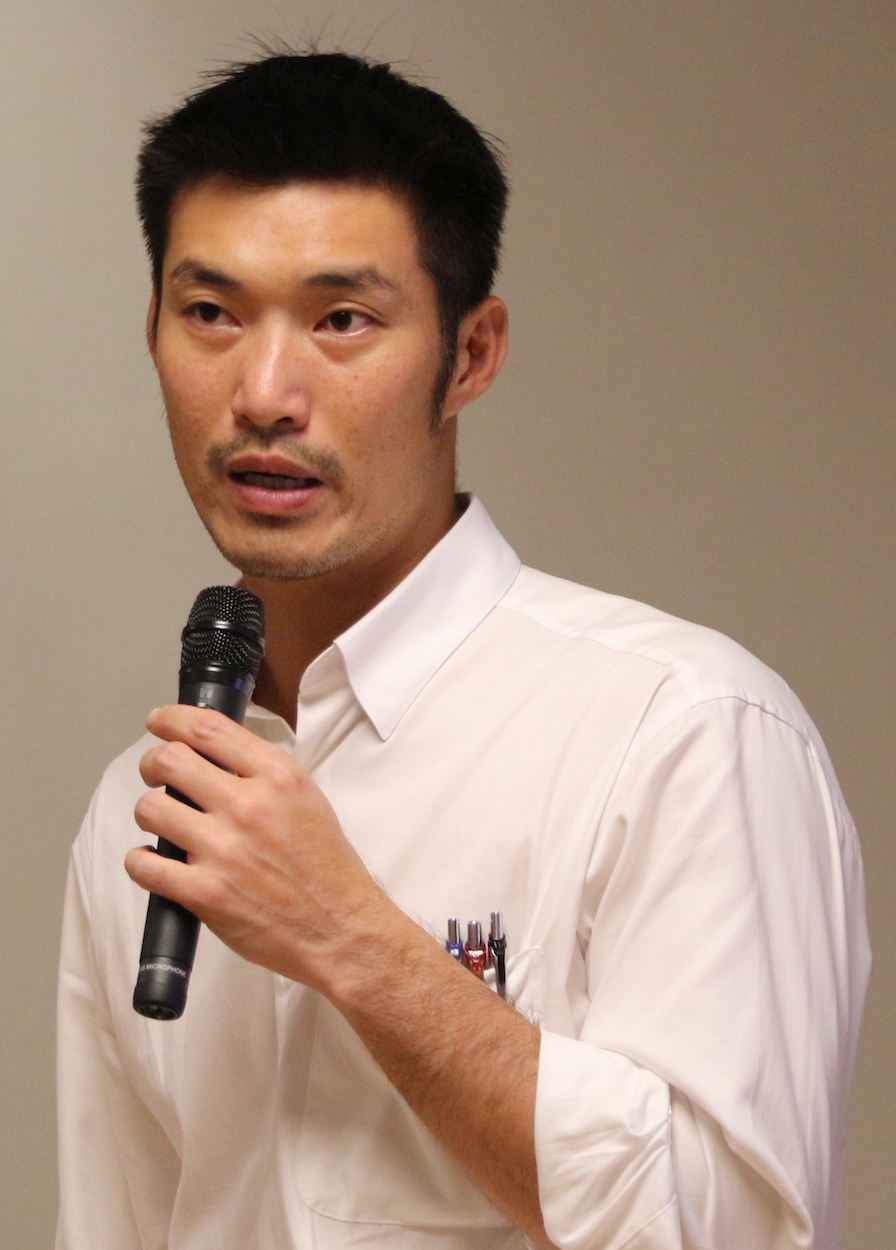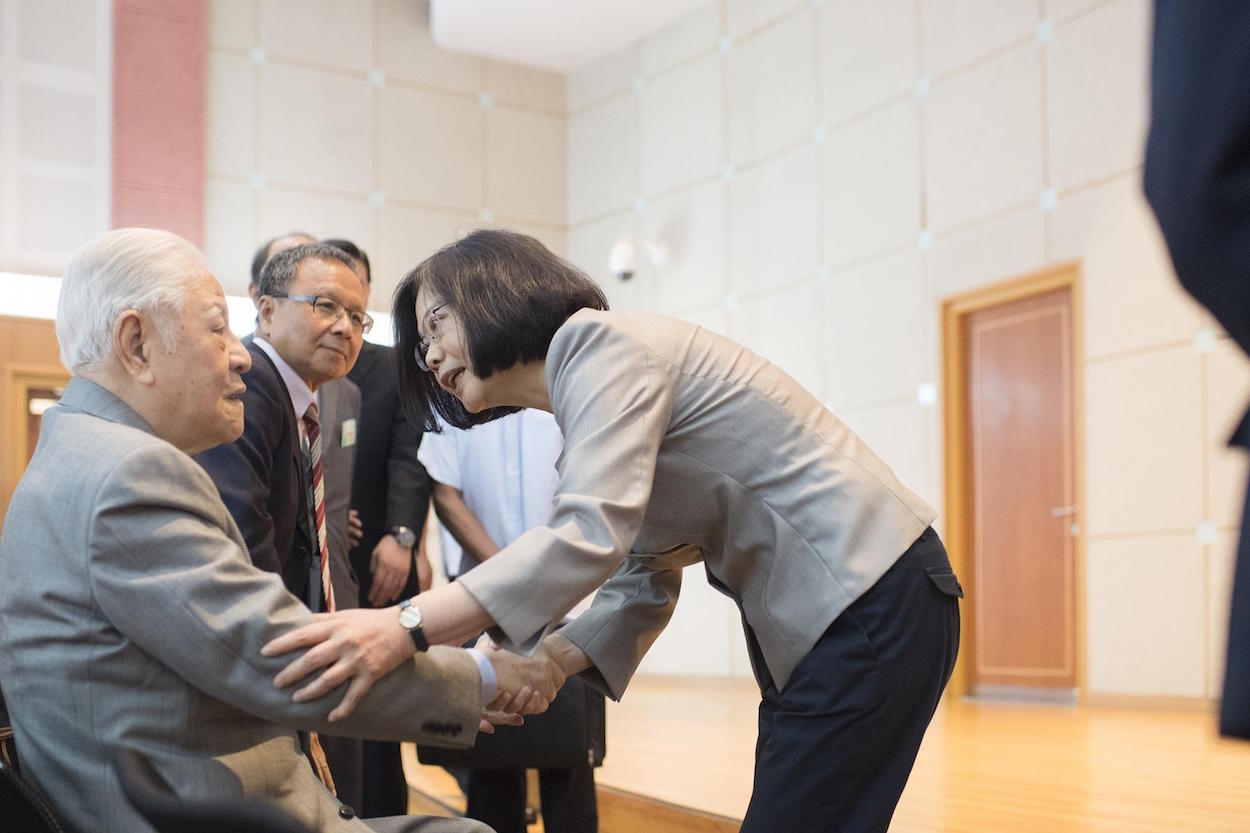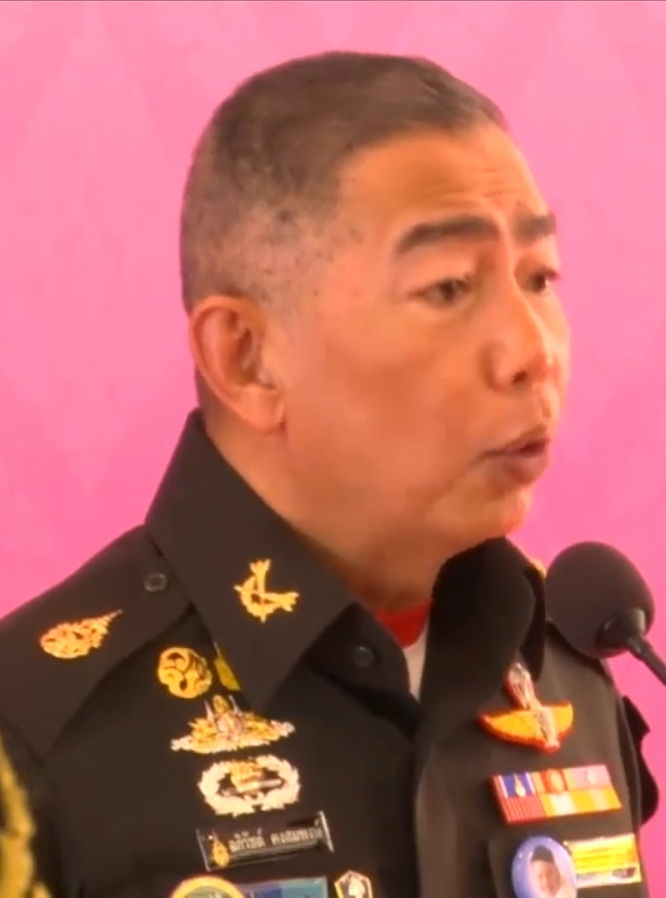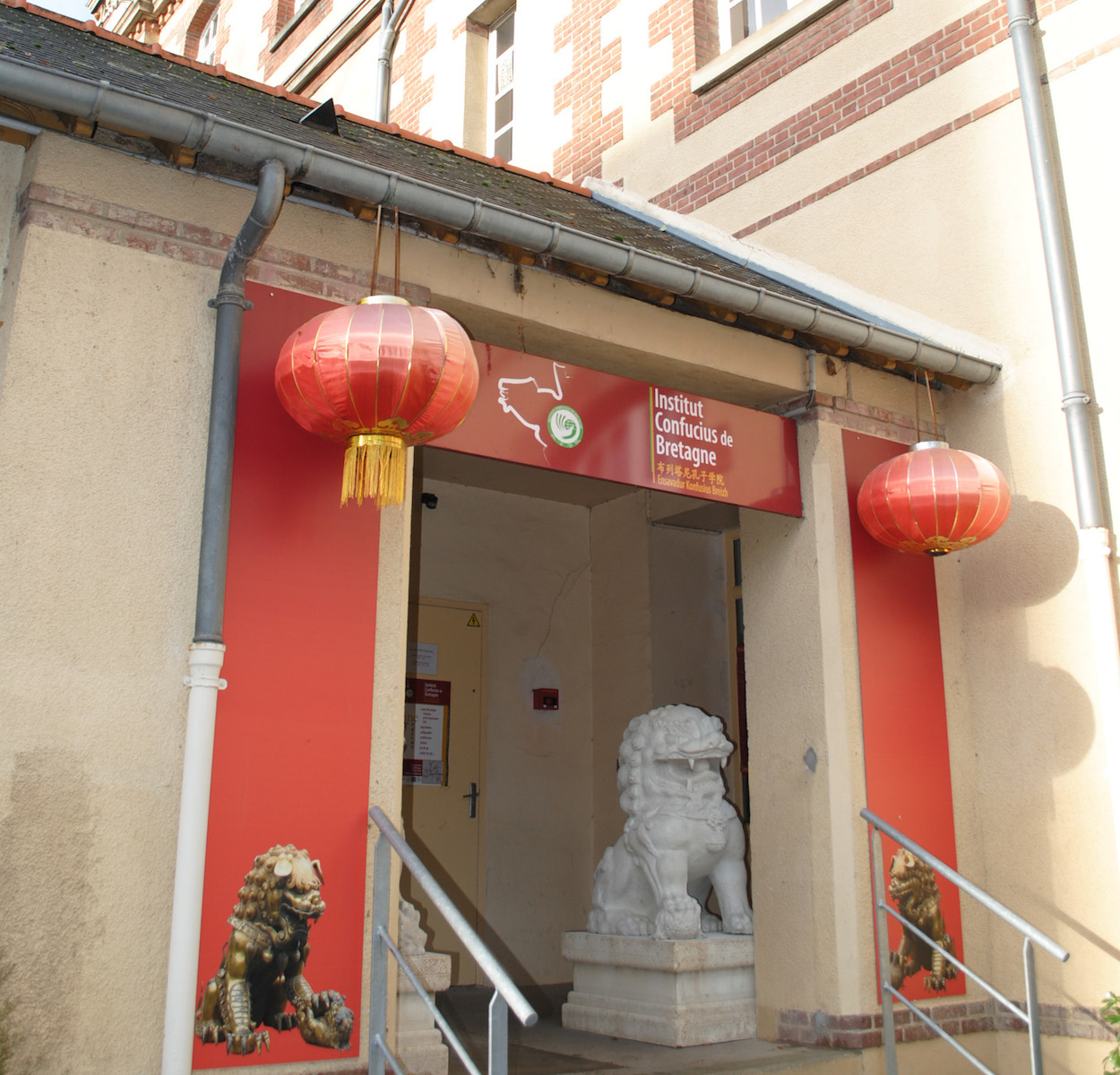by Netiwit Chotiphatphaisal and Sukrid Peansuwan
語言:
English
Photo Credit: CC
AFTER THANATHORN Juangroongruangkit, leader of the Future Forward Party, attended the Economist Forum in Hong Kong along with Joshua Wong, Wong posted a picture of himself with Thanathorn on Facebook. A few days later, the Chinese Embassy responded on Facebook, arguing that some Thai politicians were conspiring with separatists. The next day, General Apirat Kongsompomg, a senator and the Commander in Chief of the Royal Thai Army, made a public statement. General Apirat showed a picture of Wong with a silhouette of a Thai politician (which was Thanathorn), warning young people not to follow the example of youth in Hong Kong.
At first glance, it may seem as if General Apirat overreacted to the situation, as it is clear that there is a difference in context between the Thai and Hong Kong movements. At the time of the statement, I was residing in Taiwan, studying basic Chinese, and had been invited to speak at the Oslo Freedom Forum. I had the chance to have a conversation with Sukrit, a fellow student and Thai activist.
 Future Forward party leader Thanathorn Juangroongruangkit. Photo credit: Pitpisit/WikiCommons/CC
Future Forward party leader Thanathorn Juangroongruangkit. Photo credit: Pitpisit/WikiCommons/CC
We questioned whether or not Apirat actually knew that the Thai democratic movement is still considerably weak. No matter what angle we looked at the speech from, we came to the conclusion that he is aware, but if he is aware, then is he speaking to the Thai public? What would he personally gain in saying what he said? No. If that is the case, was he insinuating something to China and the United States? We believe that Apirat is signaling a message to foreign countries. Perhaps he wants the United States, with whom Thailand has just improved relations after purchasing a large amount of weapons, to know that if they do not want Thailand to lean towards China, then they should not spread nor support the idea of democracy. (We have seen this before, when Sombat Bunngam-Anong, a Thai activist, was rejected a visa to visit his daughter in the United States. Also, Netiwit himself received his visa that was only valid for two weeks, instead of ten years, and was scrutinized until he couldn’t travel to attend his conference in the US in time.)
This is still up for debate. However, what is apparent and certain from this stand-up comedy is that China will be an important variable in Thai politics going forward. Distrust in the Future Forward Party makes the support for Prayuth’s government stronger. However, the one most in trouble from Apirat’s move is not Thanathorn Juangroongruangki. Piyabutr Saengkanokkul, secretary-general of the Future Forward Party, later rebutted General Apirat the following day.
After that, a group of Taiwanese students with support from the Taiwanese government had scheduled to formally meet with the Future Forward Party. They told Netiwit that the party was concerned with problems with China, and had requested to change the meeting to an informal meeting.) but rather the development of freedom and democracy in Thailand and Taiwan’s stability that are most in trouble.
Taiwan is evidently in conflict with China. What makes Taiwan different from China is democracy, freedom of expression. On top of that, Taiwan is the first country in Asia to legalize same-sex marriage. This is the opposite of China, which is ruled under dictatorship and lacks freedom of expression.
However, with the expansion oF Chinese influence, the result of a strong economy in the past years, especially since Xi Jinping took office, Chinese power is on the rise all over the world. Taiwan has faced issues with Chinese pressure after the rise of DPP’s government. Taiwan lost official relations with 5 countries during the past five years, leaving it with only 14 allied countries.
Thailand, even without establishing diplomatic relations with Taiwan, remains an important strategic point for Taiwan. The current Taiwanese government wants to distance itself from China and trade more with Southeast Asian countries. As such, it has implemented the “New Southbound Policy”, following which we have seen increased activity from Taiwan’s attempt to implement the New Southbound Policy in Thailand through cultural work, education, and commerce. Apart from this, Taiwan has been sending student groups to visit Thailand.
However, under the conditions of US-China trade war, while China’s dictatorship ideology has strong allies in Russia, Turkey, and many other countries which are turning right in Europe and in other parts of the world, the ideological battle between democracy and dictatorship is becoming more and more apparent, especially in Thailand, where China probably will not let more politicians take pictures with Joshua Wong.
Recently, the United States, which Taiwan takes its cues from diplomatically, has faced problems with the Thai government. GSP products are forbidden from being exported to the US, which strengthens pro-China leanings among Thais who do not favor the US, and strengthens the relationship between Thailand and China. The US government does not face many consequences, rather, the Taiwanese government is the one that faces the most consequences. For the two of us, we think that the implementation of the New Southbound Policy in Thailand is not efficient enough, and that there is a need for a clearer strategy for the survival of Taiwan in the conflict between China and the United States. Meanwhile, Taiwan’s struggle also has a direct impact on the struggle for democracy in Thailand. Consequently, we think that it is important to write an article together to address this topic.
The New Southbound Policy and its Weaknesses
THE NEW Southbound Policy is not the Taiwanese government’s first attempt to decrease dependency with China and attain a balance of power with it. Under the KMT government led by Lee Teng-Hui, Lee used vacation diplomacy to carry out informal visits to Southeast Asian countries [1]. That was the first time Taiwan had a clear policy concerning Southeast Asia under the “Go South” Policy, which encouraged Taiwanese investors to invest more in the region. As for Thailand, the Taiwanese government helped the royal government with technical issues. However, the inconsistency of the policy of the KMT government under the lead of Ma Ying-Jeou, which aimed to establish more relations with mainland China, and China’s increasing role in the region inevitably decreased Taiwan’s position.
Tsai Ing-wen’s government, therefore, proceeded to reform this policy under the New Southbound Policy (NSP), which supports Taiwan to increase interactions with Southeast Asian countries. The main principles are: 1) Promote economic collaboration 2) Conduct talent exchange 3) Share resources 4) Forge regional links. Nevertheless, the results of this policy are not yet been apparent. It is not clear that this will evidently benefit the people in Taiwan and in this region.
 Former president Lee Teng-hui (left) and current president Tsai Ing-wen (right). Photo credit: Presidential Office
Former president Lee Teng-hui (left) and current president Tsai Ing-wen (right). Photo credit: Presidential Office
One of the most important problems is that Taiwan has not set a clear aim for which countries in this region that it aims to target with this plan. At first, the targeted countries were the countries in the Association of Southeast Asian Nations (ASEAN). Later, South Asian countries were added, which consist of India, Nepal, Pakistan, Bhutan, Bangladesh, and Srilanka. Apart from these, Australia and New Zealand are also included. This, therefore, raised a question as to whether this policy is just a process of going through the motions, as ASEAN countries are diverse in their political systems, societies, religion, and culture. Adding countries in the policy without good preparation will be a problem in setting a good and right policy.
Good policy has to be coordinated with adequate knowledge, and the declaration of this policy led by Tsai Ing-wen’s government was something many countries in the region took an interest in. However, when taking a look at educational institutions and thinktank institutions in Taiwan, only a few take a serious interest in this region. National Chi Nan University is the only university with a serious interest in the Southeast Asian region, with Taiwan’s first Department of Southeast Asian Studies and Center for Southeast Asian Studies. In the university, there are lectures on Southeast Asian Studies for students at the undergraduate degree, graduate degree, and doctorate degree level. Even though National Chi Nan University has been constantly demonstrating accomplishments in Taiwan, it has less budget and support than leading universities such as National Taiwan University and National Chengchi University which will do research on the Southeast Asian region. Even worse, National Chengchi University, a leading sociology university, has established a Center for Southeast Asian Studies, but hasn’t produced any serious work to support the New Southbound Policy. Meanwhile, Academia Sinica has established a Center for Southeast Asian Studies, but the study of this region is under the Center for Asia-Pacific Area Studies. A key limitation in allowing for research outside of Taiwan is difficulty in hiring research assistants and local researchers, due to the lack of support from the Taipei Economic and Cultural Office and overseas Taiwanese governmental organizations which could help to sign contracts with research assistants and local researchers in those countries. These issues should be addressed as soon as possible.
Apart from this, Taiwan has problem concerning its lack of human resources with knowledge on countries included in the New Southbound Policy, due to the high value in Taiwan placed on receiving a degree—especially a master’s degree and doctorate degree—from Western countries such as the United States, European countries, and developed countries such as Japan. Combined with the government’s lack of plans to practically send students to study in those countries, there is no guarantee for the career stability of the students that graduate from targeted countries, even though the countries in the New Southbound Policy are important markets and manufacturing countries for Taiwan. Its direction is absolutely different from China, which will be discussed in the second part of this article.
It is widely known that organizations that set and put in motion policies are not only limited to the Ministry of Foreign Affairs. Rather, there is an organization called Taiwan-Asia Exchange Foundation (TAEF) which acts as a knowledge network institute, connecting with institutions in various countries under the New Southbound Policy. However, there is a doubt on whether this organization is legitimate, as this organization is supported by the government and is one of the mechanisms of Taiwan’s foreign policies, but it is outside the purview of the parliament (Legislative Yuan), therefore it cannot be inspected for its transparency nor the progress of its policies.
This is different from the Taiwan Foundation for Democracy and Mainland Affairs Council, which is supported by the Ministry of Foreign Affairs and the parliament (Legislative Yuan). Furthermore, the mechanisms of this organization are controlled by people who have close relations with the Democratic Progressive Party: DPP, which is not supposed to be the case, as this organization should have participation from the government, the opposition, and have a civic section, not an organization that is owned by one particular political party. This should be an organization owned by each and every Taiwanese citizen, for the efficiency and consistency of implemented policies, and not to be criticized among the Taiwanese as a shadowy organization.
The Expansion of Chinese Influence in Thailand
THAILAND IS important in geopolitics in the Southeast Asian region. Thailand had been trying to maintain a balance between the two superpowers, the United States and China. Nevertheless, China’s expansion of its influence in Southeast Asia has continued. Thailand cannot avoid the influence of this new superpower. The Hong Kong case is nothing more than an issue that has prompted China to take more interest in Thailand, as shown from the Chinese embassy’s rebuttal against Thanathorn and General Apirat’s open support for China.
 General Apirat Kongsompong. Photo credit: NBT/WikiCommons/CC
General Apirat Kongsompong. Photo credit: NBT/WikiCommons/CC
The People’s Republic of China did not simply publish a corresponding letter, but it did conduct an information operation to support the Chinese government. For example, Matichon and Khaosod, among Thailand’s largest newspapers, have signed a contract with China’s Xinhua News Agency to publish news from Xinhua. The Xinhua News Agency, a mouthpiece for the Chinese government, also announced a Thai version of Xinhua News Agency for the first time. It purchased Facebook advertisements to advertise the news, which quickly made many Thai people follow it.
Taiwan has operated a website with a Thai version for longer, but the content is not tailored to Thai readers, but rather to Thai workers in Taiwan. Meanwhile, Xinhua’s website covers interesting stories regarding China in both economic and cultural aspects. This allowed China to avoid any risks that could affect China’s image from the Hong Kong protest incident very quickly.
Meanwhile, the People’s Republic of China has its own Facebook page, and interested pages, which are more diverse in content regarding economic, cultural, and gastronomical aspects. What is contradictory is that Taipei Economic and Cultural Office in Thailand held a short movie contest through a Facebook page but the content of the page is focused on publishing mainly stories and marketing strategies from China. [2] It is, therefore, questionable whether the Taipei government and the TAEF, supporters of this project, knew that its social media presence in Thailand depicted Taiwan as part of China. As such, Taiwan has to reconsider its social media strategy regarding how it wants the people in Southeast Asia to see itself.
On an interview on the TV program “Perd Pom” on TPBS, Dr. Yos Santasombat, professor at the Faculty of Social Sciences, Chiang Mai University, Thailand, spoke about China’s investments in various places all over the world, as supported by the government. China encourages its citizens to be business owners and sends its academics all over the globe by having serious supporting policies. He gave an example: if Chinese investors want to invest in Myanmar, they can borrow money from Chinese associations in Myanmar with low-interest rates, so small Chinese businesses can grow.
The professor pointed out that China had learned lessons from its blockade in the Cold War. Thailand, back allied the so-called “Free World,” was used as an anti-China base, making China attach great importance to Greater Mekong countries, stemming from the view these countries are tributary states with China as the center. He also pointed out that after the 2014 Thai coup d’etat, the Thai government has been clearing the way for China to have more influence, in order to maintain a balance of power with Western countries. But if we take another look at Taiwanese policies, we will see that there are no concrete plans or actions to counteract this. It is, therefore, not surprising that Taiwan’s economic power in Thailand is regressing and could not endure, compared to Japanese and South Korean investments, and was pushed out by newer Chinese investors.
As mentioned in the first section, Taiwanese aim to study in Western countries and in Japan, but for the Chinese government, if they want to seriously study a particular country, they usually send many people to study in that country from the undergraduate level. Sending people to country for education is a worthwhile long-term investment, and does more than only superficially engaging with organizations, as Taiwan does under the New Southbound Policy. There is no serious collaboration through such engagements, simply meeting each other in passing. By contrast, China has a serious strategy for establishing Confucius Institutes to establish positive views and to promote a good image for China. This is a similar organization to the United Kingdom’s British Council, Germany’s Goethe-Institut, and France’s Alliance Française, etc.
A clear example of the failure of Taiwan’s educational development level in Thailand is that many Chinese people are sent to study in Thailand. This is a part of China’s long-term strategic plan, One Belt One Road, to train such individuals as the business coordinators for Chinese companies. But Taiwan, even with a policy to encourage Taiwanese to study in Thailand, it has not been so far-thinking. For example, the Asian Institute of Technology has Taiwanese alumni like George Chen, former minister of Taiwan’s Ministry of Transportation and Communications, and Mao Chi-kuo, former Premier of the Republic of China. The Chinese government encourages Chinese to study here with ten scholarships, while the Taiwanese government does not have any support such as scholarships for students to study here despite having alumni who later became ministers from these institutions. Moreover, Taiwan lacks the vision to create jobs in Thailand for students who study here, making students not interested in continuing their education here.
 Photo credit: Florian B35/WikiCommons/CC
Photo credit: Florian B35/WikiCommons/CC
Taiwan Experience Education Programs seek students and researchers from New Southbound Policy countries to study, exchange, or intern in universities in Taiwan. But due to a lack of strategy, Taiwan proposed programs haphazardly. Most programs are more about science than social sciences. The result is that the programs are likely to fail and come to a stop, as there is no continuation of these programs in subsequent years. It is unfortunate to lose resources without gaining many benefits.
Strengths Which Taiwan Does Not See
EVEN WITH many flaws in policies, the Taiwanese government under the DPP has proceeded to promote human rights, justice, and democracy issues, such as through supporting the Yushan Forum. This is something that China cannot make as its selling point, especially under Xi Jinping, in which one sees mass violations of human rights toward Christians, Muslims, and dissidents. Therefore, human rights and democracy are something that can speak to a new generation of Thai people who want to find an example in Asia of a country that was successful in becoming democratic.
However, Taiwan uses this strategy to meet and discuss with organizations rather than practically act on anything. Even with the Taiwan Foundation for Democracy Foundation, whose mission is to support democracy, there is no tangible support for democracy at the global level or in New Southbound Policy countries. Furthermore, the Taiwanese government neglects to associate itself with Thai human rights activists, conducting only superficial interactions: observing, holding trainings, done.
Moreover, the Taiwanese government tends to favor a dictatorial government under Prayuth’s government. Even a progressive political party like the Future Forward Party was pressured by the Chinese government. Taiwan has an unstable status lacks bargaining power with the Thai government, and Taiwan’s support in Thailand is still limited. Taiwan itself only takes an interest mainly in the aspects of commerce, investment, and tourism. Compared with China, Taiwan is not as important to Thailand.
According to Brian Hioe, the founder of New Bloom and a former fellow of the Taiwan Foundation for Democracy, even though Taiwan has been throwing a huge amount of resources under the New Southbound Policy (NSP) and has been meeting to build a relationship with civil society organizations in Southeast Asia. Tsai Ing-wen’s government attempts are still in need of improvement. What is evident is that the Taiwanese government has failed to build connections between people in Southeast Asia and Taiwanese and activities run by NGOs. To this extent, New Southbound Policy-related groups usually encounter complicated limitations that unnecessarily waste time. [3]
If Taiwan cannot establish strong people-to-people diplomacy, Taiwan will surely be put in a difficult position. Furthermore, Taiwan will not be able to build an effective, practical civil society network, to push for democratic and human rights values that Taiwan holds. Rather, Taiwan betrayed its own self-proclaimed principles for immediate benefits at hand. As it is so, Taiwan, therefore, does not have the legitimacy to announce to the world that it stands for democracy and does not deserve pity when it tells the world that China is a dictatorship country that bullies Taiwan, as Taiwan also bullies Thailand indirectly.
Taiwan’s Zealousness in Supporting Thailand’s Authoritarian Government
IT IS SOMETHING very much contradictory for Taiwan under a DPP government, which claims to the world that Taiwan holds on to democratic values and respect human rights, to try and build ties with the Thai government. The DPP government, however, tries to seek benefits from Thailand’s undemocratic government for investment.
 Photo credit: Heeheemalu/WikiCommons/CC
Photo credit: Heeheemalu/WikiCommons/CC
From a seminar at National Chengchi University which Tung Chen-yuan, representative of Taipei Economic and Cultural Office and former professor of the university’s Graduate Institute of Development Studies attended, National Chengchi University is eager to cooperate with Thailand’s authoritarian government which succeeded in its 2014 coup d’etat, through the Thailand 4.0 policy and Eastern Economic Corridor: EEC. It is very much self-evident that both the Chinese government and large Chinese corporations benefit from this.
Furthermore, it is unclear whether Taiwan’s people and investors benefit from these projects. This Eastern Economic Corridor project is known to leave out the local people, which defies the democratic values and the respect of human rights that Taiwan holds. What’s more contradictory is that Taiwan’s willingness to build ties with an authoritarian government turned out to be a way for China to win benefits. But this is not the first time Taiwan has supported authoritarian governments [4]. As such, if Taiwan is honest regarding support for democracy and human rights in the region, then Taiwan should consider the morals and values it holds.
Conclusion
THAILAND HAS historically been caught between both the United States and China, and at present, it is still caught between the two countries’ conflicts.
Meanwhile, the United States under Donald Trump has not in the slightest made any statements support democracy in Thailand. Even though Thai people desire democracy and are more and more unsatisfied by Prayuth’s government, the United States’ current manner of behavior does not support democracy. China will play a leading role for Thailand’s elites and it will try and shore up the stability of the present regime so that Thailand continues to be ruled without democracy (which also serves as an insurance that China will not be affected by the economy.) Consequently, activist movements in Thailand will come under harder pressure.
For Taiwan, if it chooses the wrong side, considers only short-term benefits, and lacks vision and a clear strategy concerning Thailand while only making surface-level claims about democracy, Taiwan will surely lose its rather good image in Thailand. Furthermore, Taiwan’s own stability will be affected. If Taiwan does not come up with a good strategy, if it only holds meetings and discussions, the result is a lack of tangible, impactful accomplishments. Taiwan will have less space in this region
This being the case, Taiwan has two options. If it announces widely that it has a New Southbound Policy, then it should plan carefully. It has to establish cooperation vigorously with each country. Even though it may face troubles in connecting with dictatorial governments in some countries in the region that rely on China, it has to find other means of building connections as much as possible, to sell its strengths.
* The authors would like to thank Sirin Mungcharoen for her translation advice and aid
[1] Leifer, M. (1994, Feb 11). “Taiwan: A Studied Exercise in Vacation Diplomacy.” International Herald Tribune. Retrieved from https://search.proquest.com/docview/319737910?accountid=10067
[2] See: https://event.cts.com.tw/2019TTweifilm/index.html
As well as: https://www.facebook.com/869836633121664/posts/2138738966231418/
Was it intentional that this Facebook page misspelled it’s name as “Thai Cultural and Economic Center of Thailand”?
[3] Brian Hioe remarked that “Despite devoting a great deal of resources toward the New Southbound Policy (NSP) and much talk of building ties with civil society organizations in Southeast Asian countries, the Tsai administration’s efforts in this regard could still do with a great deal of improvement. For example, the Tsai administration has not been successful in creating channels for visitors from Southeast Asia to dialogue directly with the Taiwanese public writ large, and activities organized by NGOs and other groups working on NSP-related efforts are sometimes needlessly bureaucratic.”
[4] Sitthiphon Kruarattikan and Worasak Mahatthanobon. (2015). ไต้หวันในความสัมพันธ์ระหว่างประเทศ [Taiwan in International Relations]. Bangkok: Chulalongkorn University Press.

